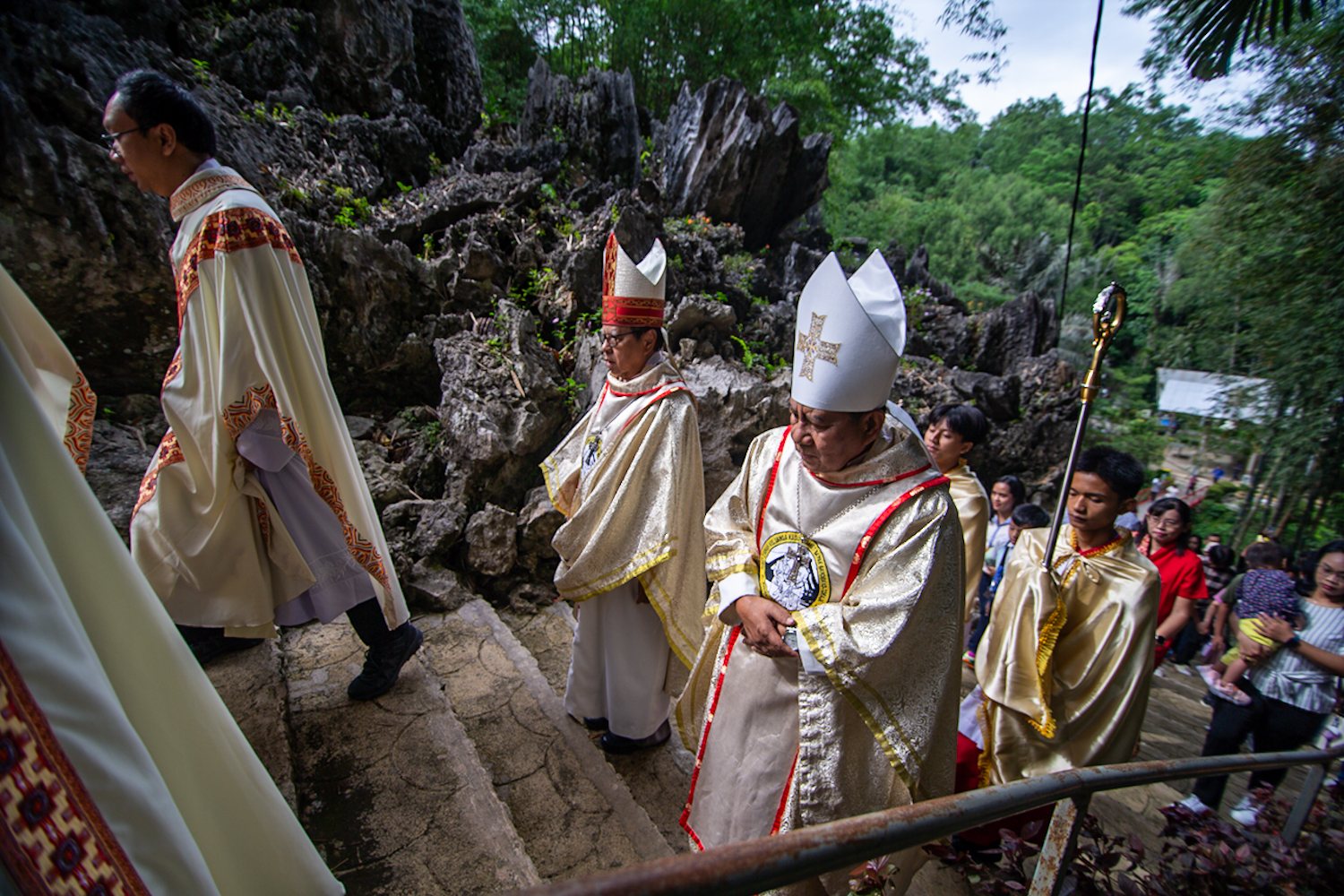Father Dinh Nguyen and the 25th Anniversary of Ecclesia in Asia
Joaquim Magalhães de Castro
During an International Symposium held in the Indian city of Bangalore, between the 13th and 14th of this month and on the occasion of the 25th anniversary of the publication of the post-synodal exhortation Ecclesia in Asia, the Secretary General of the Pontifical Missionary Union of the Clergy, Father Dinh Anh Nhue Nguyen (OFMConv), recalled that a quick glance at the content of this document is enough to realize that the key themes expressed in it are still very relevant today, a quarter of a century after its publication. Especially “in this period of synodality preparing for the Holy Year of 2025”.
Issued by Pope John Paul II in November 1999 as a conclusion to the Special Synod on Asia held that year, Ecclesia in Asia serves as a “prophetic call to the Church” to engage in the complex web of Asian societies, bearing witness to the Gospel in a “spirit of humility, respect and cooperation.” This important document invites all Asian Catholics to participate in the Church’s missionary work, always maintaining “an open mind and a willingness to learn” regarding the multiplicity of cultures present on the Asian continent.
In short, Ecclesia in Asia represents an important step in the Church’s efforts to understand and address the challenges and opportunities within the giant Asia.
Father Dinh Nguyen also recalls that this exhortation is set within the framework of “a Christological and missionary framework” covering the following themes, divided into seven chapters: the Asian context, which analyses the different realities of Asia and recognises its rich cultural and religious heritage; the figure of Jesus, the Redeemer, presented as a “gift for Asia”; the Holy Spirit, as Lord and giver of life for the mission of Christ and his Church in Asia; communion and dialogue in the mission of the Asian Church, especially the importance of ecumenical and interreligious dialogue; the ministry of human development, which addresses social issues in Asia, be they poverty, human rights or social justice; and finally, the Church as a witness to the Gospel through the deepening of Faith, Catechesis and Sacramental Life.
In all these aspects, Saint John Paul II emphasized the missionary dimension of the Church and the crucial role of the laity, especially the family and young people.
“The most recent synodal process,” says the Vietnamese religious, “which culminated in the final document ‘For a Synodal Church: Communion, Participation and Mission’, reflects many of the themes already formulated in Ecclesia in Asia.”
Both the Synod on Synodality and the Apostolic Exhortation emphasize the importance of listening to the Lord, through prayer and reading the Sacred Scriptures, but also through the lived experiences of the faithful.
“The Catholic Church in Asia,” continues the Secretary General of the Pontifical Missionary Union of the Clergy, “is today at an important crossroads and needs to reflect on its mission and identity within the diverse and dynamic cultural context of the continent.”
The Apostolic Exhortation Ecclesia in Asia is not only a fundamental document that describes the mission of the Church in Asia, but also appears as a call to revitalize “its pastoral and missionary efforts.” This objective has become even more pressing after the recent Synod, especially in view of Pope Francis’ Apostolic Exhortation Evangelii Gaudium, in which “missionary action is the paradigm for all ecclesial activity.”
As the Jubilee Year of 2025 approaches, the themes of synodality and missionary renewal formulated in Ecclesia in Asia become doubly relevant for the Asian Church as a whole and for each of the individual Churches present on the continent.
The central concern of the Exhortation is that the Church become “more missionary in her outlook.” This means that it is not enough to simply proclaim the Gospel, but above all to live it in its essence, in a way that is in tune with the local context. The challenge is to embody a faith that speaks to the hopes and aspirations of the Asian people and in this way “promotes a Church that is both universal and local in face.”
“Ecclesia in Asia,” continues Father Dinh Nguyen, “calls for a synodal Church that listens to the voices of its members, embraces diversity, and promotes inclusive dialogue.”
In this journey, the Exhortation places particular emphasis on marginalized communities, women, young people, and indigenous peoples. Their perspectives are crucial to understanding the realities of the local Church. In conclusion, Father Nguyen notes that “the missionary aspect of Ecclesia in Asia emphasizes the need for the Church to be a Church of hope and compassion in a world full of division and suffering.”
As Asia faces widespread social problems such as poverty, environmental degradation and political unrest, “the mission of the Church must go beyond the mere proclamation of faith through words”, sparing no effort, above all, “in implementing social justice and reconciliation, and standing alongside the marginalized.”


 Follow
Follow


